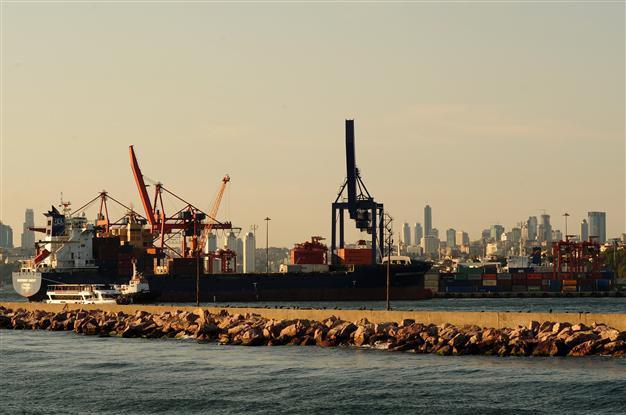OECD trims Turkey growth forecast, citing political tension and Fed
PARIS

The Paris-based OECD predicted that Turkish economic growth, which slowed down in 2013, will remain subdued through mid-2015. DAILY NEWS Photo
The Organization for Economic Co-operation and Development has trimmed its growth forecast for Turkey from 3.8 to 2.8 percent, holding political tensions and the U.S. Federal Reserve’s policy shift responsible for higher interest rates and capital outflows.The Paris-based OECD predicted that Turkish economic growth, which slowed down in 2013, will “remain subdued through mid-2015.”
The main risk facing faster growth is the loss of confidence in global and domestic markets due to strained politics and the uncertain global monetary environment.
“Further financial market turmoil during the prospective normalization of U.S. monetary policy and intensifying internal political tensions are two major risks,” the OECD said.
“Sustaining domestic and international confidence in crucial,” the organization’s economic outlook report said.
“Political tension has dented confidence, provoking capital outflow and forcing the Central Bank to raise interest rates sharply in 2014,” it said.
The organization, which brings together the world’s most developed economies, also said the country’s two Achilles heels, high inflation and a large current account deficit, remain sensitive.
“Growth is weak but headline inflation, at about 8.5 percent, far exceeds the 5 percent official target Core inflation is also rising and is above even headline inflation,” the report said, predicting that the indicator would stay high this year “as a result of additional pass-through from exchange rate depreciation and indirect tax increases, which could erode competiveness.”
According to the OECD, the country’s slight progress in balancing current account deficit is sufficient as well.
“The current account deficit approached 8 percent by 2013, and despite progress in rebalancing demand in early 2014, the terms of trade losses will likely keep it above 6 percent for some time,” the report said.
The organization suggested “improving the business environment in the formal sector by implementing regulatory reforms envisaged in the 10th Development Plan, noting that other measures could spur FDI inflows and reduce reliance on external debt.
Deputy PM Babacan urges steady growth
PARIS – Cihan News Agency
Ali Babacan, Turkey’s deputy prime minister in charge of the economy, said that even though the world was leaving its recent economic problems behind, sustainable growth should be prioritized.
In an address to the Paris-based Organization of Economic Co-operation and Development (OECD), Babacan said growth should be sustainable in terms of funding and social aspects.He also drew attention to problems with maintaining growth in advanced economies, and urged countries to speed up efforts to introduce economic structural reforms.
















